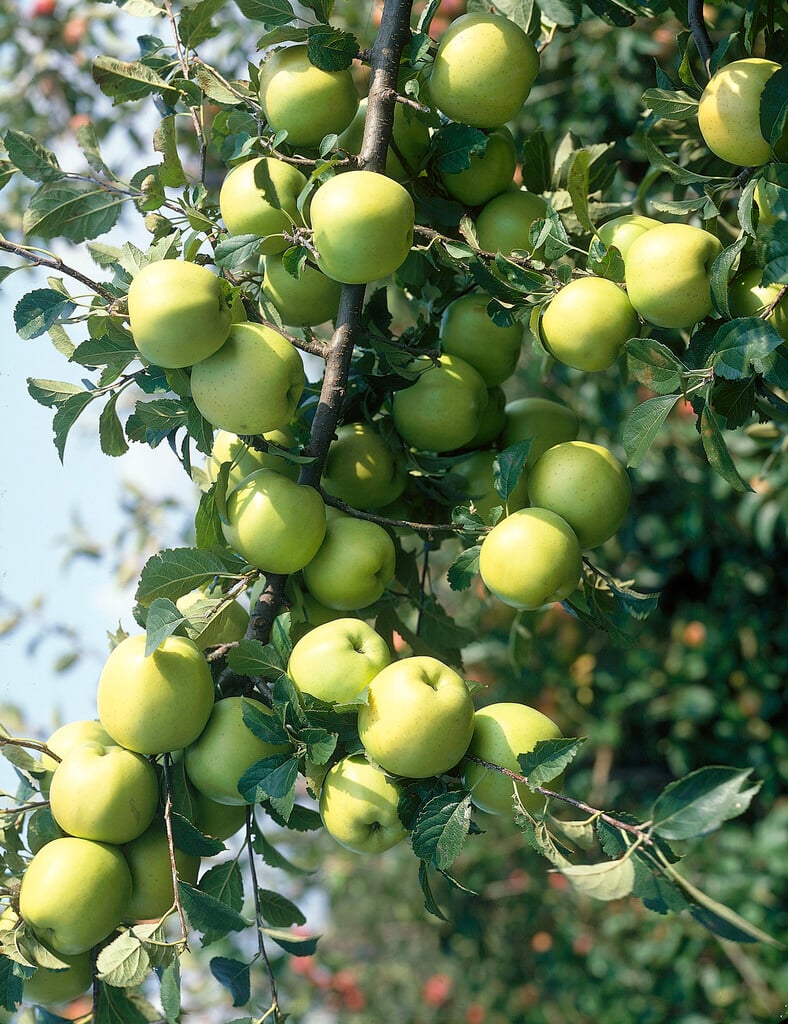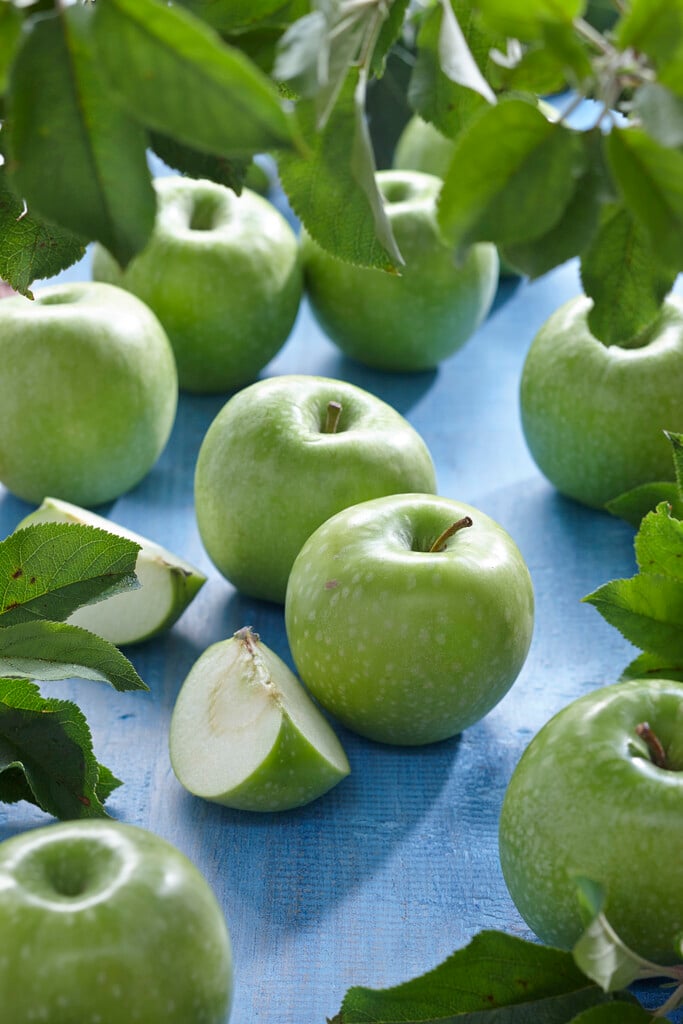Malus domestica 'Granny Smith' (D)
apple 'Granny Smith'
A late, dessert apple with bright yellow-green skin and firm, white flesh which is crisp and refreshing at its best, but can be just acidic, with little flavour. Requires a hot climate to do well, and often ripens poorly in the UK. Self-fertile trees produce heavy crops in mid-autumn, storing to mid-spring. Named after Mrs Anne Smith, from Peasmarsh, Sussex who migrated to Australia in 1838 and discovered this tree as a seedling where she had discarded some old apples
Size
Ultimate height
4–8 metresTime to ultimate height
10–20 yearsUltimate spread
4–8 metresGrowing conditions
Moisture
Moist but well–drained, Well–drainedpH
Acid, Alkaline, NeutralColour & scent
| Stem | Flower | Foliage | Fruit | |
| Spring | Pink White | Green | ||
|---|---|---|---|---|
| Summer | Green | |||
| Autumn | Green | Green | ||
| Winter |
Position
- Full sun
Aspect
South–facing or West–facing
Exposure
Sheltered Hardiness
H6Botanical details
- Family
- Rosaceae
- Native to GB / Ireland
- No
- Foliage
- Deciduous
- Habit
- Spreading branched
- Genus
Malus are small to medium-sized deciduous trees with showy flowers in spring and ornamental or edible fruit in autumn; some have good autumn foliage colour
- Name status
Accepted
How to grow
Cultivation
Prefers deep, fertile, moist but well-drained, neutral soil in a sunny, sheltered position. Will not thrive on very acid soils, shallow chalk soils or with shade for more than half the day. May require fruit thinning to improve fruit size and quality. See apple cultivation
Propagation
Propagate by chip budding in late summer, or grafting in mid-winter. Plants grown from pips are unlikely to resemble the parent
Suggested planting locations and garden types
- City and courtyard gardens
- Cottage and informal garden
- Patio and container plants
- Wildlife gardens
- Edible fruit
- Wall side borders
Pruning
Prune according to chosen training method. See apple pruning
Pests
May be susceptible to aphids, including rosy apple aphid and woolly aphid, fruit tree red spider mite, codling moth and other caterpillars
Diseases
May be susceptible to apple canker, apple scab, blossom wilt, brown rot, fireblight, honey fungus and powdery mildews
Love gardening
Sign up to receive regular gardening tips, inspiration, offers and more
View our Privacy Policy
Get involved
The Royal Horticultural Society is the UK’s leading gardening charity. We aim to enrich everyone’s life through plants, and make the UK a greener and more beautiful place.

